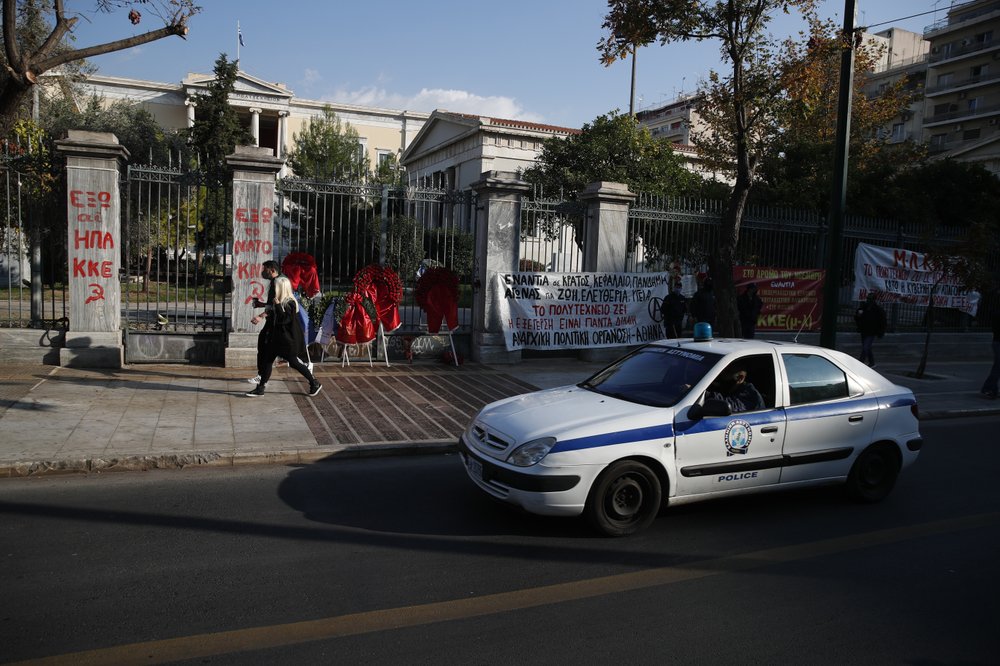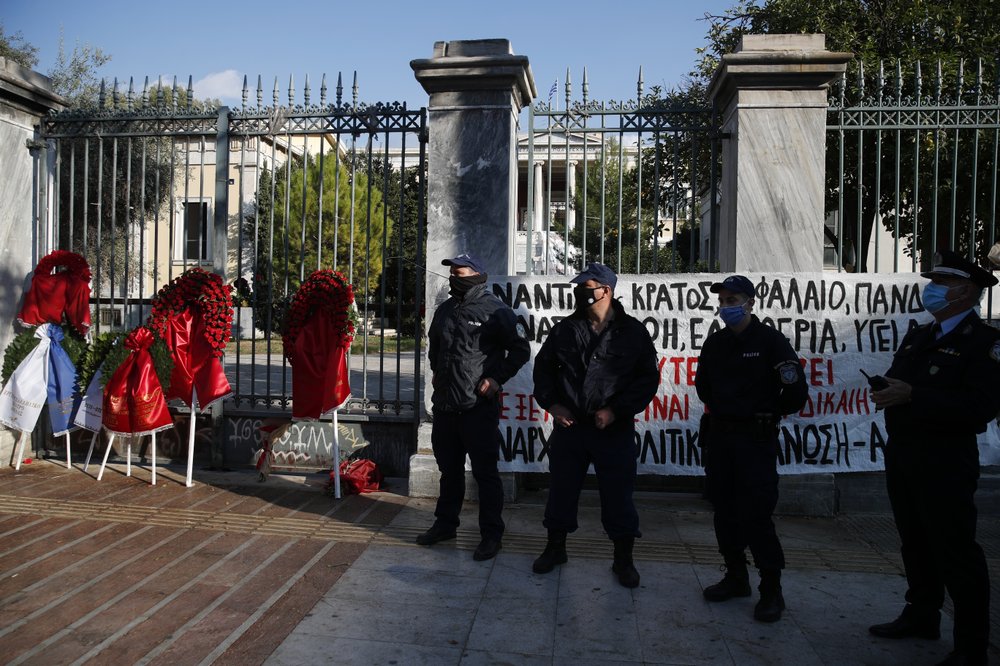Greece’s prime minister appealed to political parties Monday to show “self-restraint” in commemorations marking the 1973 crushing of a student uprising by the ruling military junta at the time, as part of measures to curtail a surging coronavirus outbreak in the country.
Nov. 17, the day the uprising was quashed, is marked each year with wreath-laying ceremonies at the Athens Polytechnic commemorating those who died there, followed by marches to the U.S. Embassy. The marches sometimes turn violent, with protesters clashing with riot police.
This year, the government has banned the marches due to a surge in coronavirus infections and deaths which are straining the country’s health system. The police chief over the weekend announced a nationwide ban on gatherings of more than three people from Nov. 15-18.

Left-wing opposition parties voiced outrage and said the ban was unconstitutional, but a late challenge at the country’s highest administrative court, the Council of State, was unsuccessful.
“At this critical time, the historic anniversary cannot become the reason for division and human lives the field of party experiments,” Prime Minister Kyriakos Mitsotakis said in a statement Monday. “For that reason I call for self-restraint from all parties.”
Mitsotakis noted that gatherings during Greece’s two national holidays on March 25 and Oct. 28 were also canceled this year.

“There can be no freedom without responsibility,” he said.
“I honestly believe that the overwhelming majority of society is having trouble following the big debate occurring about this year’s celebration in pandemic conditions,” Mitsotakis said. “The decision to not have mass events and a march is being imposed purely for reasons of protecting public health.”
On Sunday, Greece recorded its largest coronavirus death toll in a single day: 71. The country of 11 million people now has more than 76,000 confirmed cases and more than 1,100 deaths, while its intensive care units are at 78% capacity. The country is under lockdown until Nov. 30.
